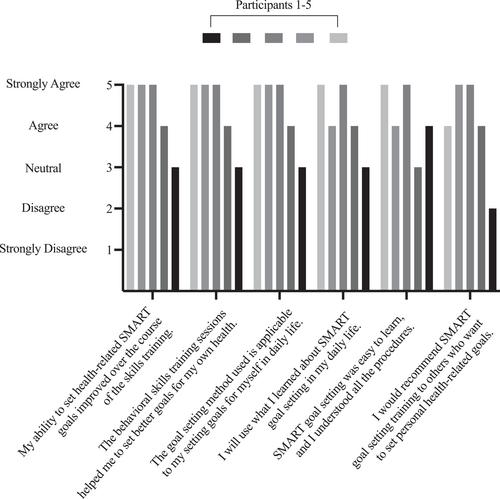利用行为技能培训教授健康行为的目标设定
IF 1.1
4区 心理学
Q3 PSYCHOLOGY, CLINICAL
引用次数: 0
摘要
目标设定是许多行为改变干预措施的组成部分,其中 "具体、可衡量、可实现、相关、有时限(SMART)"的目标设定方法是一种常用策略。本研究采用跨参与者多基线设计来评估行为技能培训(BST)的效果,以教会个人针对多种假设的健康情景设定与健康相关的 SMART 目标。根据包含 SMART 目标各主要元素的任务分析,对参与者设定目标的尝试进行评分。在接受平均 1.25 小时的 BST 后,参与者的目标设定表现有了明显改善,并且对干预措施和结果给予了好评。本文章由计算机程序翻译,如有差异,请以英文原文为准。

Using behavioral skills training to teach goal setting for health behaviors
Goal setting is a component of many behavior-change interventions, with the Specific, Measurable, Attainable, Relevant, Time-Bound (SMART) goal-setting method being a commonly used strategy. The current study used a multiple-baseline across participants design to evaluate the efficacy of behavioral skills training (BST) to teach individuals to set health-related SMART goals in response to multiple hypothetical health scenarios. Participant attempts at goal setting were scored according to a task analysis encompassing each major element of SMART goals. Goal-setting performance noticeably improved following an average of 1.25 h of BST, and participants rated the intervention and outcomes favorably.
求助全文
通过发布文献求助,成功后即可免费获取论文全文。
去求助
来源期刊

Behavioral Interventions
PSYCHOLOGY, CLINICAL-
CiteScore
1.50
自引率
20.00%
发文量
66
期刊介绍:
Behavioral Interventions aims to report research and practice involving the utilization of behavioral techniques in the treatment, education, assessment and training of students, clients or patients, as well as training techniques used with staff. Behavioral Interventions publishes: (1) research articles, (2) brief reports (a short report of an innovative technique or intervention that may be less rigorous than a research report), (3) topical literature reviews and discussion articles, (4) book reviews.
 求助内容:
求助内容: 应助结果提醒方式:
应助结果提醒方式:


